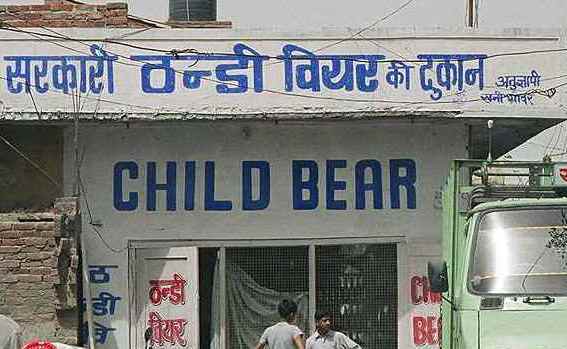It’s not that only Indians make these mistakes. Such deviations from standard English are rampant in Pakistan, Bangladesh, Sri Lanka and many other countries. Let’s have a look at weird, and sometimes funny, mistakes we make. By the way, this article is in two parts. Link to second part is here. Let’s is a short form of “let us”. For example, “let’s play football” Lets is used when permission is involved. For instance, “he lets me use his car” There is nothing like “repeat again” because the word “repeat” itself means doing something again. Incorrect: Please repeat your statement again Correct: Please repeat your statement Here the problem is similar as to with “repeat and repeat again”… there is nothing like “revert back” Incorrect: I’ll revert back to you soon. Correct: I’ll reply to you soon. Conjunction “than” is used to compare whereas “then” is an adverb pointing to time. Incorrect: Sachin Tendulkar runs faster then Dhoni Correct: Sachin Tendulkar runs faster than Dhoni Incorrect: He had gone and than she realized Correct: He had gone and then she realized North Indians use these two unnecessary words to pose questions as well as to make statements. For example: “He is to very smart na” Here “o” of to is pronounced as in “go” and “a” of na is pronounced as in “jar”. Both to and na are nonsensical and totally unnecessary. Such usage should be avoided. Take another example: Incorrect: “You are going na?” Correct: “You are going, aren’t you?” Incorrect: I didn’t saw him Correct: I didn’t see him Remember, “did” is always followed by the first form of the verb. Indians use the word “only” for adding emphasis. This is not exactly wrong except that in India “only” is overused to emphasize. In Hindi, there are words that we use to emphasize something. One such word is “hi” as in “Ramesh ko Nagpur jana hi hai”. English language lacks such words. Perhaps this is the reason, Indians make use “only” to replace “hi”. For example, Indians tend to translate “main to aisa hi hoon” as “I am like this only”. However the correct form would be: Incorrect: I am like this only Correct: This is how I am Can denotes the ability of doing something whereas “may” denotes asking for the permission for doing something. Incorrect: Can I take this magazine? Correct: May I take this magazine? If you say “Can I take this magazine?” –you are actually questioning your ability to take or lift a magazine. Of course you are strong enough to lift it and therefore you can take it. But when you say “May I take this magazine?” –you are asking for someone’s permission to have the magazine. I must credit Mr. Y.Singh, my English teacher in 9th class, for telling me about this correct usage. Although, having done my entire schooling in Hindi medium schools, at that time, I was least bothered about such nitty-gritty of English language! In standard English cousin is used for both the sexes –brother or sister is not attached with this word. Although, it makes sense to use cousin brother or cousin sister because these terms are more informative –but, unfortunately, in standard English these terms are deemed as wrong. Ok, now we move on to the the second part of this article on English language mistakes in India. I believe that Mr. Kumar’s article addresses cultural usage, which is often just as important as grammatically correct usage. Revert and Revert back Here the problem is similar as to with “repeat and repeat again”… there is nothing like “revert back” Incorrect: I’ll revert back to you Correct: I will revert to you I have earlier read that, the meaning of the word ‘Revert’ (to return to a former state) prevents it from being used in the example given. As I understand, this word (Revert) is used a lot in emails; however, should be replaced with words for e.g. – reply, respond/response. I would like to hear your views on this… Comment * Name * Email * Website
Δ

